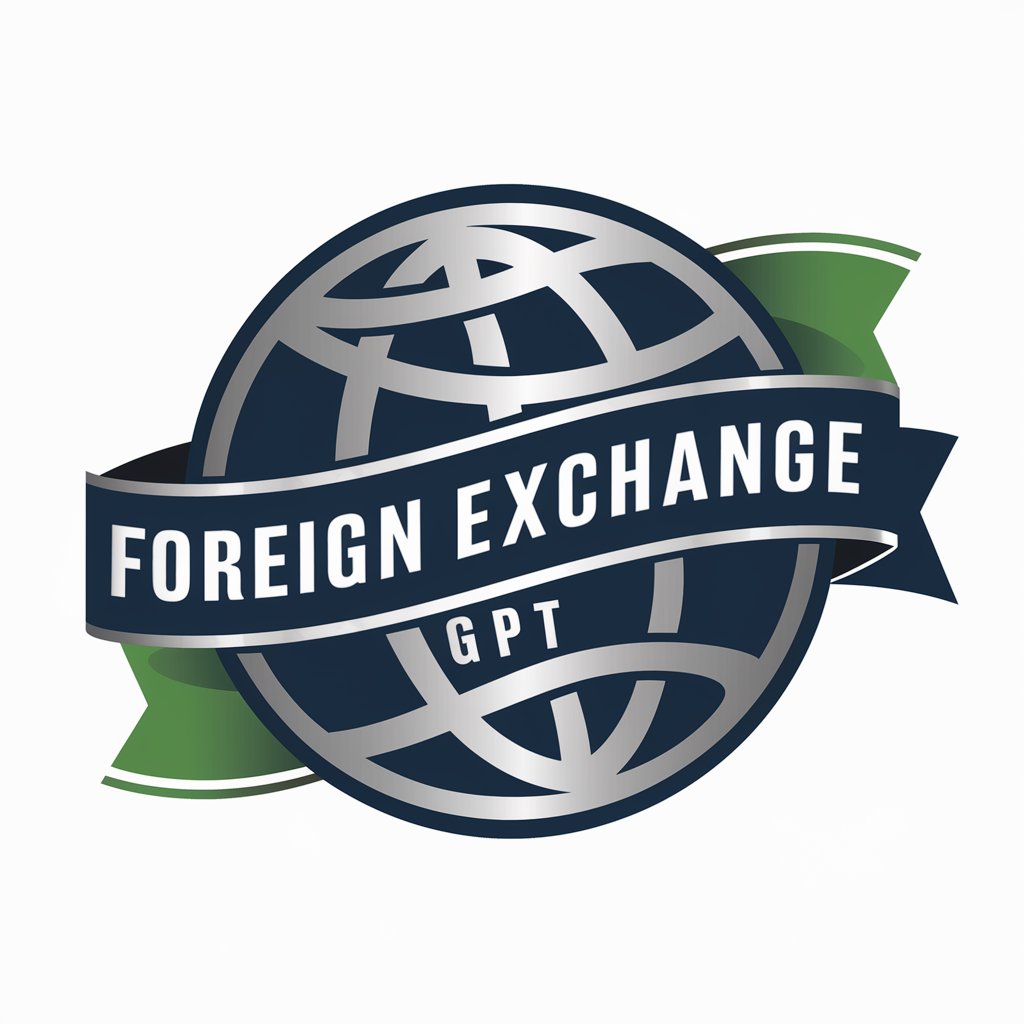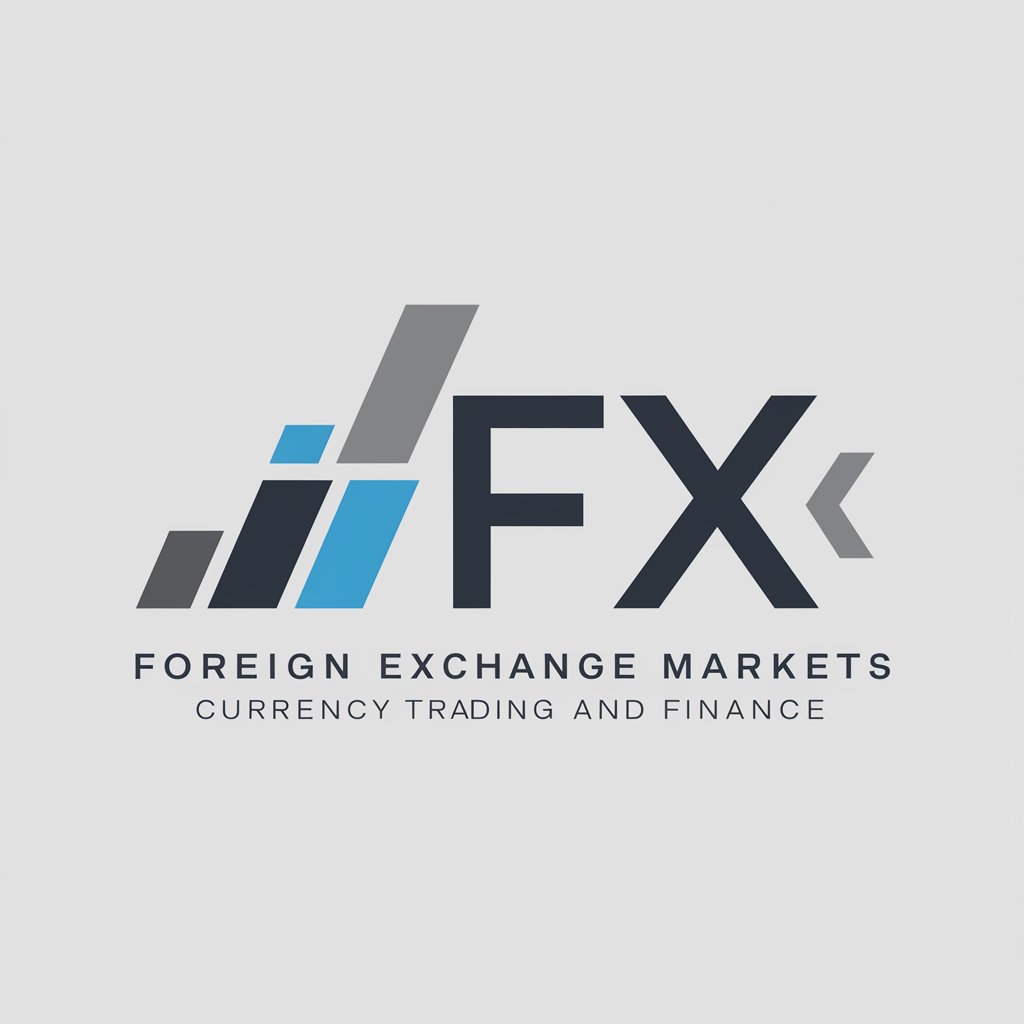Foreign Exchange - Access to Forex Insights

Welcome! How can I assist you with your foreign exchange questions today?
Empowering Your Currency Trading with AI
Can you explain the concept of currency pairs in forex trading?
What are the major factors that influence exchange rates?
How does central bank policy impact foreign exchange markets?
What are the benefits and risks of currency hedging for businesses?
Get Embed Code
Overview of Foreign Exchange
Foreign Exchange, often referred to as Forex or FX, encompasses the global marketplace where currencies are traded. It is the largest and most liquid financial market in the world, with an average daily trading volume exceeding $6 trillion. The primary purpose of the Forex market is to facilitate international trade and investment by enabling currency conversion. For example, a European company importing products from Japan may need to exchange Euros for Japanese Yen. The Forex market also serves as a platform for speculation on currency price movements, hedging against currency risk, and diversification of investment portfolios. Key participants include central banks, commercial banks, financial institutions, corporations, governments, and individual traders. The market operates 24 hours a day, five days a week, spanning across major financial centers in London, New York, Tokyo, Zurich, Frankfurt, Hong Kong, Singapore, Paris, and Sydney. Powered by ChatGPT-4o。

Core Functions of Foreign Exchange
Currency Conversion for International Trade and Investment
Example
A U.S. company needs to pay for imported goods from Germany. It uses the Forex market to exchange U.S. Dollars for Euros to settle the transaction.
Scenario
This process facilitates international trade by allowing businesses to operate in foreign currencies, thereby smoothing the process of global commerce.
Speculation on Currency Movements
Example
Traders anticipate the Euro will strengthen against the U.S. Dollar. They buy Euros with Dollars, hoping to profit from the expected increase in the Euro's value.
Scenario
Speculators use Forex to bet on currency movements, aiming to profit from changes in exchange rates. This can involve short-term trades or longer-term strategic positions.
Hedging Against Currency Risk
Example
A multinational corporation expecting to receive revenue in Australian Dollars in six months uses a forward contract to lock in the current exchange rate, protecting against potential unfavorable shifts in currency value.
Scenario
Companies and investors use hedging strategies in the Forex market to protect against the risk of adverse currency movements affecting the value of their foreign income or investments.
Investment Diversification
Example
An investment portfolio manager allocates a portion of the portfolio to foreign exchange futures to diversify risk and potentially enhance returns.
Scenario
Investors incorporate currency assets into their portfolios to spread risk and take advantage of opportunities presented by the volatility and dynamics of the Forex markets.
Who Benefits from Foreign Exchange Services
Multinational Corporations
Businesses with operations across multiple countries rely on Forex services for currency conversion and hedging against currency risk. This ensures smooth financial operations and protection against unfavorable currency movements.
Individual and Institutional Traders
This group includes day traders, hedge funds, and financial institutions that speculate on currency price movements. They seek to profit from Forex market volatility through various trading strategies.
Exporters and Importers
Companies engaged in international trade use Forex to manage currency transactions required to buy and sell goods and services across borders, enabling them to deal with currency volatility.
Investors Seeking Portfolio Diversification
Investors looking to diversify their investment portfolios beyond traditional stocks and bonds can use Forex markets to access foreign currencies, potentially enhancing returns and reducing overall portfolio risk.

How to Use Foreign Exchange
Initiate Your Journey
Start by visiting yeschat.ai to access a free trial without the need for login or a ChatGPT Plus subscription, offering a seamless entry into the world of foreign exchange.
Identify Your Needs
Determine your specific foreign exchange requirements, whether for currency trading, hedging, speculation, or understanding exchange rates for international business.
Explore Tools and Resources
Utilize the available tools and resources to analyze market trends, currency performance, and economic indicators that influence foreign exchange rates.
Engage with the Community
Participate in forums and discussions to gain insights from experienced traders and financial experts, enhancing your understanding and strategies in foreign exchange.
Practice and Learn
Make use of demo accounts or simulators to practice trading without financial risk, allowing for experimentation with strategies and gaining practical experience.
Try other advanced and practical GPTs
FX
Empowering FX Trading with AI

Correcteur Orthographique FR
AI-powered French writing assistant

FP GPT
Empowering Senior-Focused Marketing with AI

Expertag
Navigate Florida's DMV and insurance maze with AI-powered assistance.

Florida Custody and Civil
Empowering Legal Decisions with AI

Did You Know Video Email - Brokers
Engage and Educate with AI-Powered Video Emails

10K Top G Business Strategist
Empowering Your Social Media Success with AI

گپ با بابانوئل
Bringing Christmas Magic to Your Screen

Hard Drive
Unlocking Storage Solutions with AI

Backup Hard Drive
Secure your data effortlessly with AI-driven backup solutions.

Expert on He Jiankui's CRISPR Experiment
Deciphering CRISPR's Ethical Boundaries

TopicMapGPT
AI-powered Content Mapping Simplified

FAQs About Foreign Exchange
What is foreign exchange and how does it work?
Foreign exchange, or forex, involves the trading of currencies in the global market. It works through the buying and selling of currency pairs, where the value of one currency is compared against another, allowing investors to speculate on currency movements.
Can individuals participate in foreign exchange trading?
Yes, individuals can participate in forex trading using online platforms provided by brokers. They must open an account, deposit funds, and then they can start trading by predicting the direction of currency pairs.
What are the major currency pairs in forex trading?
The major currency pairs include EUR/USD (Euro/US Dollar), USD/JPY (US Dollar/Japanese Yen), GBP/USD (British Pound/US Dollar), and USD/CHF (US Dollar/Swiss Franc), among others. These pairs are the most traded and are known for their liquidity and lower spreads.
How do economic indicators affect forex trading?
Economic indicators like GDP growth rates, employment data, inflation, and central bank policies can significantly affect currency values. Traders analyze these indicators to predict currency movements and make trading decisions.
What are the risks involved in forex trading?
Forex trading involves significant risk due to market volatility, leverage usage, and the 24-hour trading environment. It's crucial for traders to use risk management strategies, such as stop-loss orders, to minimize potential losses.
